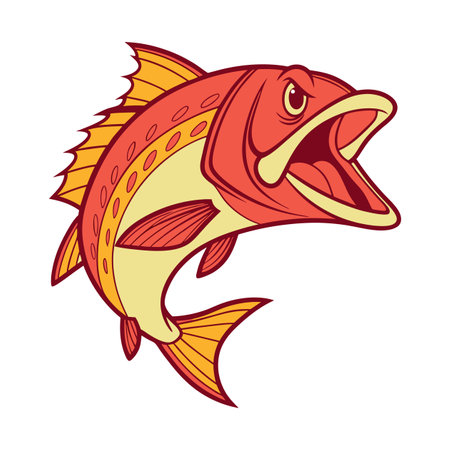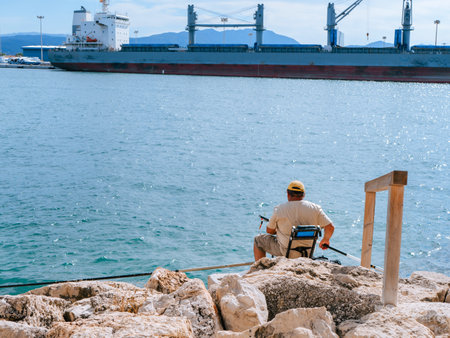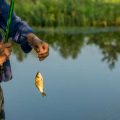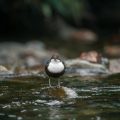Introduction to Seasonal Sea Fishing in the UK
Sea fishing has long been woven into the fabric of British coastal life, offering both locals and visitors a unique way to experience the nation’s diverse waters. From windswept Scottish lochs to the bustling piers of the South Coast, angling is more than just a pastime—it’s a cherished tradition steeped in regional pride. But, as any seasoned UK angler will tell you, not all months are created equal when it comes to sea fishing opportunities. The species you can target, the techniques that yield results, and even the locations themselves transform with the seasons. Understanding these key differences is vital for anyone aiming to book a guided charter experience that delivers on both excitement and success. Timing matters: peak migrations, spawning seasons, and local weather patterns all dictate which fish are biting—and where. Booking your charter at just the right moment can mean the difference between an unforgettable haul and a quiet day on the water. In this guide, we’ll break down how Britain’s changing seasons shape sea fishing across its coasts and help you pinpoint exactly when and where to book your next guided adventure for maximum reward.
Spring: Early Action on the British Coast
As winter fades and temperatures begin to rise, spring marks an exciting start for sea anglers across the UK. This is a prime time to book guided charter trips, as many sought-after species become increasingly active along the British coastline. Understanding which fish are in season and where to target them can make all the difference for your fishing experience.
Prime Spring Species
During spring, several key species become available to anglers:
| Species | Best Locations | Peak Months |
|---|---|---|
| Cod | North East England, Yorkshire coast, Scottish waters | March – May |
| Bass | Cornwall, South Devon, South Wales coasts | April – June |
| Plaice | Thames Estuary, Sussex beaches, Liverpool Bay | March – May |
Regional Variations: Where and When to Book
The UK’s diverse coastline means that fishing opportunities vary by region. In northern areas like Northumberland and Scotland, cod are still present in good numbers well into late spring, often caught from both boats and shore marks. Meanwhile, southern counties such as Cornwall and Devon see the first of the bass arriving around April, with estuaries and surf beaches being especially productive. East coast anglers target early plaice runs, particularly on sandy stretches near the Thames and Suffolk.
Weather Considerations for Spring Charters
The British spring can be unpredictable—mild spells may suddenly give way to brisk winds or heavy showers. When booking a guided charter, always check with local skippers regarding recent weather patterns and sea conditions. Calm periods offer the safest and most enjoyable angling, while rougher days might limit access to certain marks or require rescheduling.
Pro Tip: Booking Early for Best Results
Many top charters fill up quickly once word gets out about early spring runs of cod, bass, or plaice. To secure your preferred dates—and benefit from the local expertise of seasoned guides—it’s wise to book your spring fishing trips well in advance. Look for charters with strong reviews and a track record of adapting tactics to regional changes in fish movement and weather.

3. Summer: Peak Variety and Tourism
Summer is widely regarded as the prime season for sea fishing in the UK, both for the abundance of fish species and the vibrant coastal atmosphere. As the waters warm up, a diverse range of target species becomes available, drawing anglers from across Britain and beyond. The increased daylight hours and calmer seas also make this an ideal time to book guided charter experiences along the coast.
Target Species: What’s Biting?
During summer, mackerel shoals arrive in vast numbers, making them an accessible and exciting target for all skill levels. Smooth-hound and tope are also prominent catches during these months, providing a real thrill for those seeking larger specimens. Many charters specialise in targeting these energetic fighters, offering tailored trips that maximise your chances of landing them.
Top Coastal Towns for Charter Bookings
The UK boasts several coastal hotspots renowned for their summer fishing scene. Whitby in North Yorkshire is famous for its mackerel runs and family-friendly charters. Penzance in Cornwall offers access to deeper waters where tope and smooth-hound can be found in good numbers. Plymouth, with its rich maritime history, provides a gateway to both wreck and reef fishing, ensuring variety throughout the summer months. Meanwhile, Brighton on the south coast remains a popular choice for quick getaways from London, with numerous boats ready to cater to visitors.
Booking Tips: Securing Your Spot
Summer is peak tourist season, so it’s essential to book your charter experience well in advance—especially if you’re planning around school holidays or local festivals. Look for guides who offer all tackle included and are familiar with current regulations regarding catch limits and protected species. Don’t hesitate to ask about the best times of day for your preferred catch; experienced skippers will know when and where the action peaks.
4. Autumn: Trophy Fish and Changing Conditions
As autumn sweeps across the UK, sea fishing enthusiasts are greeted by a season of dynamic changes and prime opportunities for landing trophy catches. The cooling waters from September to November trigger significant shifts in fish behaviour, attracting larger species closer to shore and creating some of the years most exciting angling prospects.
Prime Species: What to Target in Autumn
Autumn is particularly renowned for its big conger eels and pollack. Conger eels grow especially large during this period, lurking around rocky marks, piers, and wrecks. Pollack become more active too, especially over offshore reefs and wrecks. Additionally, cod start making their first appearances as winter approaches, giving anglers another sought-after prize.
| Species | Best Locations | Peak Months | Tackle Tips |
|---|---|---|---|
| Conger Eel | Bristol Channel, South Devon, South Wales | Sept – Nov | Heavy-duty rods, wire traces, large fish baits (mackerel or squid) |
| Pollack | Cornish Coast, Scottish West Coast, Isle of Man | Sept – Oct | Lure fishing over wrecks/reefs; soft plastics or sidewinders effective |
| Cod (early run) | North East England, Humber Estuary, Kent Coast | Late Oct – Nov | Bottom fishing with lugworm or peeler crab baits |
Changing Conditions: How Autumn Affects the Fishing Experience
The drop in temperature prompts many summer species to move offshore but brings predatory fish closer to feed before winter. Sea states can be unpredictable—expect rougher seas and stronger winds. Water clarity may vary after storms, impacting bait presentation and visibility for lure fishing. Tides also become more pronounced following autumn equinoxes, providing short windows of optimum action during big spring tides.
Booking the Right Charter: Practical Advice for Autumn Trips
- Plan Ahead: As conditions can change rapidly, book your charter well in advance but maintain flexibility for rescheduling if severe weather is forecasted.
- Select Experienced Skippers: Opt for guides familiar with local autumn patterns and capable of adapting to shifting weather.
- Packing Essentials: Layer up with waterproof clothing; autumn showers and cold winds are common at sea.
- Tide Awareness: Work with your skipper to target peak tides—often the key to successful autumn fishing sessions.
- Safety First: Check that your chosen boat meets current MCA safety regulations and that life jackets are provided.
Autumn Charter Booking Checklist:
- Date Flexibility: Be prepared to adjust dates due to weather cancellations.
- Tackle Provided: Confirm if heavy tackle for conger/pollack is supplied or bring your own.
- Bait Arrangements: Ask if fresh bait is included or needs to be sourced locally.
- Crew Experience: Prioritise charters with experienced local crews for best results.
- Sheltered Options: For rougher days, see if the skipper offers sheltered inshore alternatives.
If you’re aiming for a UK personal best this year, autumn offers an unrivalled mix of big fish potential and thrilling conditions—just make sure you plan smartly to take full advantage of this productive season on British seas.
5. Winter: Niche Species and Hardcore Angling
When winter descends on the UK, sea fishing transforms into a pursuit for the truly dedicated. As temperatures drop and daylight hours wane, many fair-weather anglers pack away their gear, but those in the know relish this season for its niche opportunities and exhilarating challenges.
Targeting Winter Favourites: Whiting and Cod
The colder months bring sought-after species like whiting and cod closer to shore. Whiting, often overlooked in other seasons, come into their own during winter—offering consistent sport and rewarding sessions even when conditions are tough. Meanwhile, cod become the star of the show in many UK waters, drawing anglers from across the country hoping to land that elusive double-figure specimen.
Top Locations for Winter Sea Fishing
For the best results, look to traditional hotspots such as the North East coast (Scarborough, Whitby), Kent’s shingle beaches (Dungeness), and the Bristol Channel’s rugged marks (Minehead, Watchet). Charter guides operating from these areas have honed their winter tactics over decades, making them invaluable for both local anglers and visiting enthusiasts seeking reliable action during the colder months.
Guided Charters: Braving the Elements for Success
Winter weather can be unforgiving, with rough seas and biting winds a regular feature. Local charter skippers are adept at reading these conditions—they’ll adjust departure times for tidal windows, use heavier tackle to combat strong currents, and employ baits like lugworm or squid that are proven winners for cod and whiting. Their deep local knowledge not only boosts catch rates but ensures safety is always paramount.
Booking a winter charter isn’t just about catching fish; it’s about embracing the full experience—crisp air, dramatic seascapes, and a camaraderie that comes from facing the elements together. For many UK anglers, these winter trips become the highlight of their fishing calendar.
6. Regional Recommendations for Top Guided Charters
Cornwall: A Year-Round Angler’s Haven
Cornwall stands out as a premier destination for sea fishing charters, blessed with a rugged coastline and a proud maritime tradition. Spring sees the arrival of bass and pollack around the Lizard Peninsula, while summer brings mackerel shoals and the prized blue shark off Falmouth. Autumn is ideal for wrasse and conger eels, especially near Newquay. Winter cod are best pursued in sheltered estuaries such as the Fal River. Booking tip: Many Cornish skippers operate small, friendly boats—book well in advance during school holidays, and be sure to ask about catch-and-cook experiences for that authentic Cornish touch.
Northumberland: Untamed Shores & Seasonal Surprises
The North Sea coast of Northumberland offers dramatic landscapes and uncrowded waters. From spring through early autumn, Amble and Seahouses host charters targeting cod, coalfish, and ling on the reefs. Late summer is prime time for flatfish like turbot and plaice near Holy Island. The region is steeped in history—many charter trips include stories of local shipwrecks and smuggling tales. Booking advice: Weather can be changeable; flexible dates are wise. Look for guides who supply waterproof gear and hot drinks—a must in northern climes!
Sussex: Southern Comfort & Urban Access
Sussex offers excellent seasonal variety just a short hop from London. In spring, Brighton charters target early bass and smooth-hounds; by summer, expect bustling mackerel runs, bream, and even the odd tope. Autumn is famed for big plaice along the West Sussex coast, while winter sees whiting in abundance near Shoreham. Many charters here combine fishing with sightseeing along iconic chalk cliffs or Victorian piers. Booking tip: Sussex boats fill up quickly at weekends—midweek bookings often secure better rates and more attentive guidance.
Cultural Notes & Local Etiquette
Each region has its own traditions—Cornwall’s cream teas after a day afloat, Northumberland’s hearty pub lunches featuring locally caught fish, or Sussex’s vibrant seaside towns with classic British fish & chips. Always respect local customs; chat with your skipper about sustainable practices and “bag limits.” Brits value punctuality—arrive early for your trip!
Practical Booking Advice
For peak seasons (May–September), book at least two months ahead—especially for weekend slots or larger groups. Off-season trips often offer discounted rates and a more personal experience but check cancellation policies due to weather risks. Lastly, confirm what’s included: tackle hire, bait, refreshments—and don’t forget your suncream or a warm hat depending on the season!
7. Essential Booking & Preparation Tips
How to Book a Reputable UK Charter Experience
When planning your sea fishing adventure, always book with reputable charter operators who are licensed and insured. Check online reviews, ask for recommendations on British angling forums, and confirm that skippers are certified with organisations like the Professional Boatmans Association or Angling Trust. Early booking is wise—especially during peak seasons (spring and summer)—to secure your preferred dates and target species.
Understanding Local Etiquette
British sea fishing has its own set of unspoken rules. Always arrive punctually and treat the skipper’s boat with respect—no muddy boots or careless handling of equipment. If you’re new to the area, be sure to ask about local catch limits, conservation measures, and whether “catch-and-release” is encouraged for certain species. Bring cash for gratuities; it’s customary in the UK to tip your skipper if you’ve had a good day out.
Kit Recommendations: What to Bring & What’s Provided
Most guided charters supply rods, reels, bait, and tackle, but it’s best to confirm when booking. For comfort in Britain’s variable climate, pack layered clothing, waterproofs, non-slip deck shoes, sunscreen—even in spring—and seasickness remedies if needed. Don’t forget a camera for those “personal best” moments and a sturdy cool box if you intend to take fish home (check local regulations first).
Matching Your Trip to Your Fishing Goals
Selecting the right charter experience depends on your ambitions. For beginners or family groups, opt for short inshore trips targeting mackerel or flatfish—these are plentiful through summer and autumn. Experienced anglers may prefer full-day offshore excursions after cod or skate in winter. Discuss your skill level and goals with your skipper—they’ll recommend the best times, locations, and techniques for an unforgettable outing.
Final Thoughts
A well-planned UK sea fishing trip is as much about preparation as passion. Respect local customs, bring the right kit for all weathers, and choose experienced guides who share your enthusiasm. With these tips, you’ll not only catch more fish—you’ll also enjoy Britain’s rich maritime culture at its finest.


